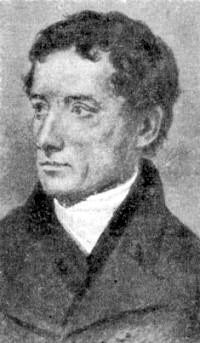ELIA (ee-LYE-uh)
1.
Elia Kazan: Greek-born American film and theater director and
producer
2. Pen name of English essayist Charles Lamb
Common
clues: Director Kazan; “On the Waterfront” director
Kazan; “East of Eden” director Kazan; Essayist's
alias; Lamb's literary moniker; Lamb's pen name
Crossword
puzzle frequency:
8 times a year
Frequency
in English language:
69445 / 86800
Video: The
Life, Works, and Impact of Elia Kazan
You've got to keep fighting - you've got to risk your life every six months to stay alive ~ Elia Kazan
Elia Kazan (September 7, 1909 – September 28, 2003) was a Greek-born American film and theatre director and producer.

He was born Elia Kazanjoglou in Istanbul in 1909 to Greek parents. He became one of the most visible members of the Hollywood elite. Kazan's theater credits included directing The Glass Menagerie (1944) and A Streetcar Named Desire, (1951) the two plays that made Tennessee Williams a theatrical and literary force and All My Sons (1947) and Death of a Salesman (1949) the plays which did much the same for Arthur Miller.
His history as a film director is scarcely less noteworthy. He won two Academy Awards for Best Director, for Gentleman's Agreement (1947) and On the Waterfront (1954). He elicited remarkable performances from actors such as Vivien Leigh and Marlon Brando in the film version of A Streetcar Named Desire, James Dean in East of Eden, and Andy Griffith in A Face In The Crowd.
His later career was clouded, however, by the fact that he was one of the few Hollywood luminaries who "named names" before the House Un-American Activities Committee during the postwar "Red Scare". Kazan had briefly been a member of the Communist Party in his youth, when working as part of a radical theatre troupe in the 1930s. A committed liberal, Kazan felt betrayed by the atrocities of Stalin and the ideological rigidity of the Stalinists. He was personally offended when Party functionaries tried to intervene in the artistic decisions of his theater group.
As Kazan later explained, he felt that it was in the best interest of the country and his own liberal beliefs to cooperate with McCarthy's anti-communist efforts in order to counter Communists in Hollywood who were co-opting the liberal agenda. American playwrights Lillian Hellman and Arthur Miller publicly and bitterly disagreed with Kazan's reasoning.
Elia Kazan died of natural causes at his home in New York. He was 94.
***
Charles Lamb (10 February,1775- 27 July, 1834) was an English essayist, best known for his Essays of Elia and for the children's book Tales from Shakespeare, which he produced along with his sister, Mary Lamb.

Charles Lamb was the youngest child of John Lamb, a lawyer's clerk. He was born in the Inner Temple and spent his youth there, later going away to school at Christ's Hospital. There he formed a friendship with Samuel Taylor Coleridge which would last for many years. After leaving school in 1789, he went to work for the South Sea House, whose subsequent downfall in a pyramid scheme after Lamb left would be contrasted to the company's prosperity in the first Elia essay. In 1792 he went to work for British East India Company, the death of his father's employer having ruined the family's fortunes. Charles and his sister Mary both suffered periods of mental illness, and Charles spent six weeks in a psychiatric hospital during 1795. He was, however, already making his name as a poet.
In 1799, John Lamb died and Charles became guardian to Mary, whose mental instability prevented her from looking after herself. Lamb continued to work as a clerk for the East India Company and doubled as a writer in various genres, his tragedy, John Woodvil, being published in 1802. His farce, Mr H, was performed at Drury Lane in 1807. In the same year, Tales from Shakespeare (Charles handled the tragedies and Mary the comedies) was published, and became a best-seller for William Godwin's "Children's Library".
Charles, who had never married because of his family commitments, fell in love with an actress, Fanny Kelly, of Covent Garden, but she refused him and he remained until his death a bachelor. His collected essays, under the title, Essays of Elia, were published in 1823 ("Elia" being the pen-name Lamb used as a contributor to The London Magazine). A further collection was published ten years later, shortly before Lamb's death. He died of an infection, erysipelas, contracted from a cut on his face. His sister, who was ten years his senior, survived him.
This article is licensed under the GNU Free Documentation License. It uses material from the Wikipedia article "Elia Kazan" and "Charles Lamb".
|
|